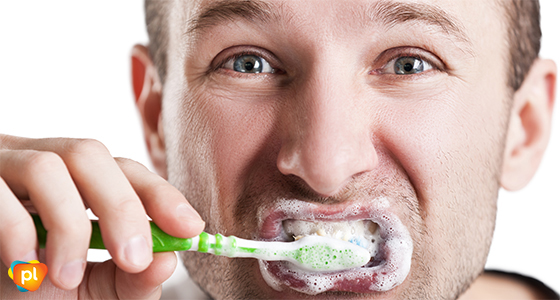
People living with HIV can have dental problems both from HIV itself and from other medications. In fact more than 90% of PLHIV will see at least one manifestation of oral disease. How well you look after your mouth and teeth has an enormous impact on how healthy your mouth is and how fabulous your smile.
Teeth are not just important for chewing, but for good nutrition, fresh breath and looking your best. Gum disease and tooth decay can impact on your whole body, from increasing your risk of a heart attack or stroke to making diabetes difficult to manage. What causes gum disease and tooth decay?
Your mouth is home to many different bacteria. Plaque is a sticky biofilm made up of those bacteria that lives on the surface of your teeth. These bacteria feed on the remains of the food in your mouth and coating your teeth. Some foods are more problematic than others. Sugary food is a particular favourite for the bacteria living in your mouth. The type of food, when and how often it’s eaten all impact on the health of your mouth. As the bacteria feed on food, especially sugar, acid is produced which can wear away at the tooth enamel and cause caries (holes). If plaque is not regularly removed by brushing, a build up along the gumline can cause gum disease or gingivitis.
Many people living with HIV may not know the importance of good dental care and the negative impact of poor care. NSW Health and HIV agencies in NSW have recognised the seriousness of oral health for people living with HIV and formed the oral health promotion working group. This group has been interested in finding out what people living with HIV and the health clinicians who provide their care know about oral health.
We have asked questions from how often you brush your teeth, to the type of toothbrush and mouthwash used, to what type of fluid you mainly drink throughout the day. We were also very interested in how often this topic came up during health visits that were not specifically about oral health e.g. seeing a dietitian, nurse or doctor.
After much consultation two resources have been published to help promote awareness and knowledge around oral care. Health workers now have access to a factsheet with key points to discuss with their clients, plus a simple screening tool to identify clients that need to see a dentist.
People living with HIV also now have an oral health booklet specifically written for people living with HIV. The booklet explains common dental health problems and their causes, how what you eat and drink affects your mouth, how lifestyle factors impact your oral health and even how to clean your teeth, plus more. These resources have been distributed to clinics across NSW, so ask at your local clinic for your copy!
What people with HIV have said about the booklet;
“Important booklet that some of us miss out about our dental health”
“Easy to understand – reinforcing of ideas I had already”
“Importance of good oral health. Particularly being HIV positive”
“Very comprehensive”
“Easy to read”
So what does the booklet say? Here are some of the tips you will find in the booklet to look after your teeth, mouth and gums;
- Good oral hygiene – brush twice per day, floss, use the right toothbrush
- Eat well – avoid sugary and acidic drinks and don’t snack too often
- Drink plenty of water
- Stop smoking
- Get to know your dentist
Resources
- Find a NSW Health Public Dental Health Service
- HIV and your Mouth – Positive Life Factsheet
- Open Your Mouth – Oral Health Promotion Working Group
- Public Dental Services – NSW Health Brochure
For information or support call Positive Life NSW on (02) 8357 8386, 1800 245 677 (freecall in NSW) or email contact@positivelife.org.au






